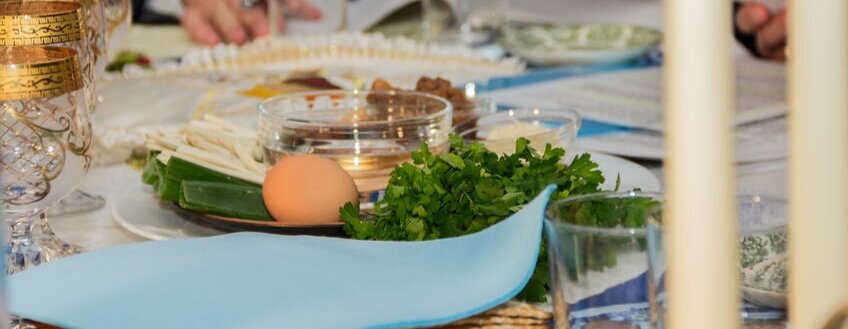Pesach and Relationships
In relationships, there is often a tension between subjective and objective. For example a child comes home saying her friend was mean. The parent can just say get over it – objective, or could overreact and phone to attack the friend’s parents - subjective. The ideal approach is to utilise emotional intelligence to support and educate the child.
We tend to see relationships as spontaneous. Whilst there should be that element, as we are human, there are tools for developing and sustaining relationships.
Pesach is the social Chag (creation of the nation, tell your children, chaburas haPesach etc.) Accordingly, in the Pesach Experience, the Chazal (Sages) have incorporated essential elements in building and maintaining of relationships as can be seen in the following list.
Pesach Social Lesson
Pesach Practices
1. Rid oneself of arrogance.
Biur chometz (destroying chometz)
2. Shared experience
Seder
3. The relationship should move progressively
Kadesh Urchatz…15 steps
4. Sanctify the relationship (Dedicated to higher goals and objectives - eg raising a family with values)
Kiddush
5. Wine in appropriate amounts enhances conversation
Arbaah Kosos - 4 cups of wine
6. Converse - talk and listen
Maggid - story of the Haggadah
7. See oneself as incomplete without the other
Yachatz - break the middle matzah
8. Recognise the other
Halamchma anya - Kol Diztrich - This is the bread of poverty…whoever needs
9. Recognise the needs of the other and endeavour to accomodate them
Whoever needs come and join us
10. Ask detailed questions that show real interest in the other
Mah Nishtana
11. Deal with the other according to who they are, not according to who you want them to be
Arbaah Banim - 4 sons
12. Recalling negotiated obstacles and challenges strengthens the relationship
Maggid - telling the story
13. “Thanks for everything” is thanks for nothing - true gratitude requires detail
Dayenu
14. Communicate important issues and prioritise
Rabban Gamliel says whoever does not say three things has not fulfilled their mitzvah
15. Humility
Matzah (unrisen bread)
16. Truth is the basis of trust
Matzah (essence of bread)
17. Eating takes the most physical behaviour and raises it by sharing the pleasure, conversing etc. to spiritual
Sulchan Orech - set table
18. At first not all should be revealed - ultimately nothing need to be hidden
Tzafun - Afikoman
19. Recognising the good in ones life initiated by the other
Barech - the blessing after the meal
20. Realise that everything is from Hashem (less focus on the blame of the other)
Pesach expirience
21. Ultimate relationship level - your will is my will - Epitomised by the story of Rabbi Arye Levin going to the doctor and saying “my wife’s foot is hurting us”
Nirtzah




